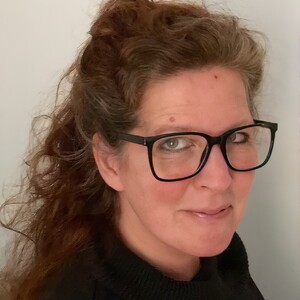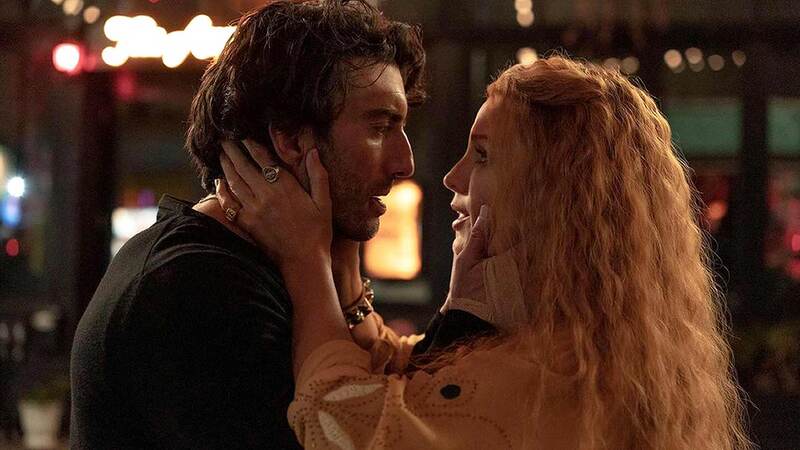You are viewing your 1 free article this month. Login to read more articles.
Bi the book
Bi writers are loud, proud and talented—but they don’t get enough attention in the literary rainbow.
From Bowie to Byron, bisexual people are a vital part of the creative world. Roxane Gay is one of us. We have the Top Alans—Bennett and Cumming—in the bi team. YA author Becky Albertalli writes fantastic bi characters. Jen Campbell writes award winning short stories and poetry. There’s Rita Mae Brown, Caroline Lea, James Baldwin, June Jordan....
We’re out and proud in the world and yet many people struggle to name five bisexual writers of any gender, and bi characters in books are few and far between. The bi voice is in danger of becoming lost in the rainbow.
"Bi erasure" is a term used for the removal and dismissal of bisexuality—for instance, if a historical figure’s private letters were found to reveal a same-sex affair, historians tended to regard them as closeted gay or lesbian rather than possibly bisexual. Authors who are open about their bisexuality are regularly assumed gay or heterosexual, determined by the gender of their partner.
It’s important to challenge such preconceptions. We all know the joy of seeing ourselves represented in the media, and for minority groups it can be a rare and precious occurrence. Erasure works the other way. Never seeing ourselves, never hearing our voices, silences who we are.
Some bi authors have erased their sexuality from their own narratives. Nobody wants to read about bisexuality so why write it? Without writing, without publishing and without selling, those stories will disappear.
Many people struggle to name five bisexual writers of any gender, and bi characters in books are few and far between
In fiction, bisexuality is often folded quietly into the narrative. The preconceptions and representations of bisexuality have, in the past, relied on tired tropes and clichés, plots involving adultery or subterfuge to depict fluid sexuality. Until recently, there were comparatively few books, TV shows or movies where a bisexual character is shown in good light. As Roxane Gay said: "If I am in the spotlight, I want to look good."
Bisexuals are, like every other human group, varied. The entire basis of bisexuality is fluidity, therefore allowing a huge scope of potential characters and stories.
Both James Baldwin and Virginia Woolf have written about this fluidity. Others have hinted at it. Thankfully, there is an encouraging emergence of bisexuality in fiction—predominantly in the Romance and Young Adult genres; Adiba Jaigirdar and Talia Hibbert, for example. Casey McQuiston and Justin Myers have written about bisexual men. Jen Campbell speaks openly about her own bisexuality.
In non-fiction, Lauren Nickodemus’s book, The Bi-ble: An Anthology of Essays on Bisexuality, is an inclusive and sensitive collection of thoughts and experiences, and in Bi Any Other Name, editors Loraine Hutchins and Lani Ka’ahumanu have put together a really varied account of different people’s feelings about their bisexuality.
But even in queer literary anthologies, we have seen a concentration of gay and lesbian writers with less space made for bi/pan writers and other voices. It’s wonderful—and essential—to celebrate all queer writers. It would be great to see more representation of diversity within the queer literary family. In panels of queer speakers at literary events, we’d love to hear more bisexual voices in the mix. Let’s speak up. Let’s celebrate who we are and what we write.
Readers rely on booksellers to show us what is out there in the literary world. Booksellers know their books, but a character’s capacity for romantic or physical attraction to multiple genders is a detail that rarely ends up on a blurb.
Gay’s The Word bookshop in London flags the bi books on its shelves so readers can easily find them, and they have a fabulous list of bi writers and bi books, but even they don’t have enough for an entirely bi section within the shop.
Among LGBTQ+ displays, it can be a struggle to locate the B. A bookseller compiling books from across the rainbow for Pride Month can only find so much if the books aren’t there, but more are trying and that matters.
As we welcome bi authors and celebrate all the diverse groups within the queer community, it is our hope that writers will feel safe and happy to be open about their bisexuality. In turn, readers will see themselves reflected in the world, and that’s a wonderful, wonderful thing.
Looking ahead, Celebrate Bisexuality Day is on 23rd September. Then there’s Pride month in June...
We’re here and we’re queer, and we all have stories to tell.
This piece was written in conjunction with Cypriot storyteller and author Polis Loizou. The Way It Breaks is out now, and A Good Year will follow in April by Fairlight Books. You can find him on Twitter at @polisloizou.















